When human beings are designed to be living in a community, I wonder if I can be really independent?
At some point in life, I came to the realisation that I compulsively took care of everyone around me, often ignoring my own needs and wants. I probably took my care giving a bit too far, which triggered negative thought patterns and behaviors in me.
Check this article “Do you crave independence?” on the concept of independence
My quest to find the ideal state of independence led me on a journey to find myself while keeping a strong bond with family and friends. I found some clues when I researched on co-dependent patterns.
I found a wealth of information and reflection points that could help me find my unique balance. Have you struggled with finding your balance in relationships? Let’s explore this topic together.
Expression of my personal understanding:
Now, an important disclaimer: whatever I have described here is purely from my understanding and experience and a mere attempt to articulate my opinion. I have no psychology qualification or research background, so please do take it with a pinch of salt.
This article intends to introduce some fundamental concepts as it relates to dependency in relationships, based on my understanding. I hope this article triggers some curiosity to do a deep dive into yourself.
If you research online, many dependency scales start from dependency going into independency and then into inter-dependency. Much of this content is based on Stephen Covey’s work. His work shaped my early understanding and comprehension of the human psyche. Do refer to his work to get more context and perspective.
For this article, I have taken the liberty to paint a picture to explain my perspective from my personal experience. So this is far from research material! Please do let me know in the comments below if this resonates with you.
Let me first explain some key terms that might help orient you with the concept of dependence and independence.
Co-dependence:
If you are in a state of co-dependence, you think “I am not safe” unless you are supported by someone or a group of people. You have an urge to look after other people to feel that you are worthy of being loved.
You feel compelled to help other people achieve their goals so that they would help you achieve yours. You habitually put the other person’s needs and wants before your own needs and wants.
You make excuses for the other person’s wrongdoings and mistakes and presume the role of the saviour. Many people in this role I observe are in denial of this state of dependence or find themselves trapped with no way out.
An example of someone in this state is a close family member or friend of a person engaged in any addictive behaviour such as alcoholism, substance abuse, gambling etc.
Dependency:
While many of the materials that I researched define dependency as a state in its own right, I would like to see this as a zone encompassing other states of dependence. Again, that’s my preference to get some context for my own life.
When you are in the state of dependence, you think “I am safe” yet needing somebody or a group of people to look after you. You feel you cannot achieve your goals yourself and need help from someone to achieve them.
A typical example I could think of is that of a subordinate who is dependent on his boss to fulfill their professional goals. Again the objective here is not to defend the position you are in as you do not see any other choice.
The emphasis here is to bring awareness that could help you respond to challenges better.
Inter-dependence:
When you are in a state of inter-dependence, you feel empowered by the collective. You think, “we are safe; we are free; we are responsible.” You know you could achieve your goals yourself and believe you could do more when you collaborate with people.
You see the possibility of a healthy exchange of giving and taking. You believe in the group (family, workplace, community) that looks after each other.
Nature’s eco-system is an excellent example of inter-dependence. It is no surprise for me that nature chose the state of inter-dependency as the norm for all organisms on planet earth to grow and thrive.
Any disruptions to the eco-system (for example, collective human ignorance of their inter-dependence on plants and animals) is what I perceive to be natural disasters!
Independency:
While many of the materials that I researched define independence as a state on its own right, I would like to see this as a zone encompassing other states of independence. Again, that’s my preference to get some context for my own life.
When you are in the state of independence, you think “I am safe and I am free.” You believe you can look after yourself and achieve all your goals by yourself.
I think it is an easy concept to grasp when I give an example of a country’s independence from its colonial rule. An independent country is empowered with freedom of choice at the same time, making it accountable for the consequences of decisions made.
Counter-dependence:
This state is the polar opposite of the state of co-dependence. If you are in this state, you are fiercely independent and feel uncomfortable making connections with people. You believe if you make connections, people will impose thoughts and feelings on you. This belief could mean you are losing yourself, so you think, “I am better off without anybody.”
You always struggle to ask or accept help, even in seemingly necessary instances. Although you may appear to be successful and confident externally, you feel empty and lonely inside as you cannot make emotional connections.
One extreme example I could think of is ascetic saints/monks/yogis. They choose a state of counter-dependence on relationships, bodily needs, and human feelings to explore the path of solitude and abstinence.
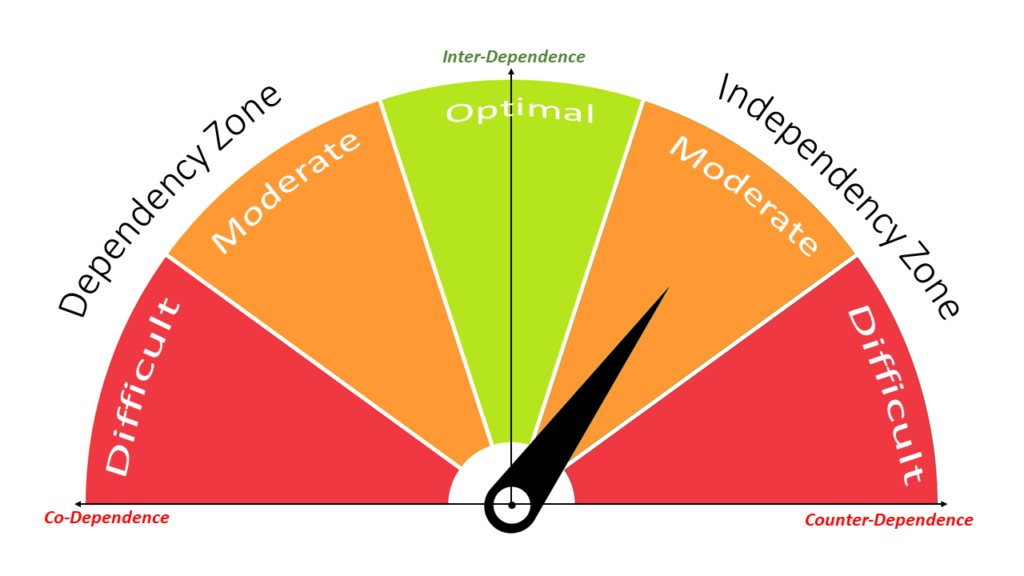
Dynamics of life stages:
As a child, we are co-dependent on our parents or caregivers and slowly graduate into more independent states.It is interesting to observe at what age did we move from dependency zones to independency zones in general.
I have observed that a person may be in different stages with different relationships. So if there was a needle for each significant relationship in a person’s life, it could be in different places.
I also believe the needle moves drastically in either direction, when we have significant life events. For example, starting a relationship, marriage, parenthood, a sudden disability or a major medical diagnosis, death of a loved one etc, could influence our normal preferences and pattern.
Finding my unique balance:
Per my picture on the dependency spectrum, I have marked the colours green, orange and red. The colours represent optimal, moderate and difficult experiences I am likely to feel in that particular relationship.
The needle in the picure for example points out that I am moderately independent in that relationship. It also tells me that I could do better to improve the relationship. When the other person in the relationship would also like to move in the direction of more optimal level of healthy inter-dependency, I could work on strengthening the bond. This could bring more peace, joy and contentment in that relationship.
Troubleshooting relationships:
When I am constantly struggling with a person in my close circle, I would start calibrating where my needle is within that relationship . I would also reflect on my understanding of where the needle is for the other person. This step usually helps me in responding to the challenges in the best possible manner.
When the problem persists, then I would have an open discussion with the other person on what his/her needs are for the relationship. This discussion, in my experience, usually takes some courage and a lot of trust with the other person.
I have experienced friendships fall out abruptly without even knowing what the issues were in the first place. I feel, by having an open conversation, I could either make efforts to resolve the issue or agree to step back from engaging in that relationship more gracefully.
When the problem persists, and both people have intentions in keeping the relationship alive, I feel it is wise to consult a third party for help. It is essential for the third person is unbiased, trustworthy, and knowledgeable, who could throw some light on the issue from an independent perspective.
Reflections:
- How happy are you with the quality of your close relationships?
- Which of the above dependency states is your natural preference as an adult?
- How has your childhood experiences influenced your dependency states in individual relationships?
- How would the other person’s (close family, friend, etc.) dependency state affect the relationship both positively and negatively?
- What insights have you drawn about yourself or your relationship pattern?
- How could you bring these insights to help you currently?
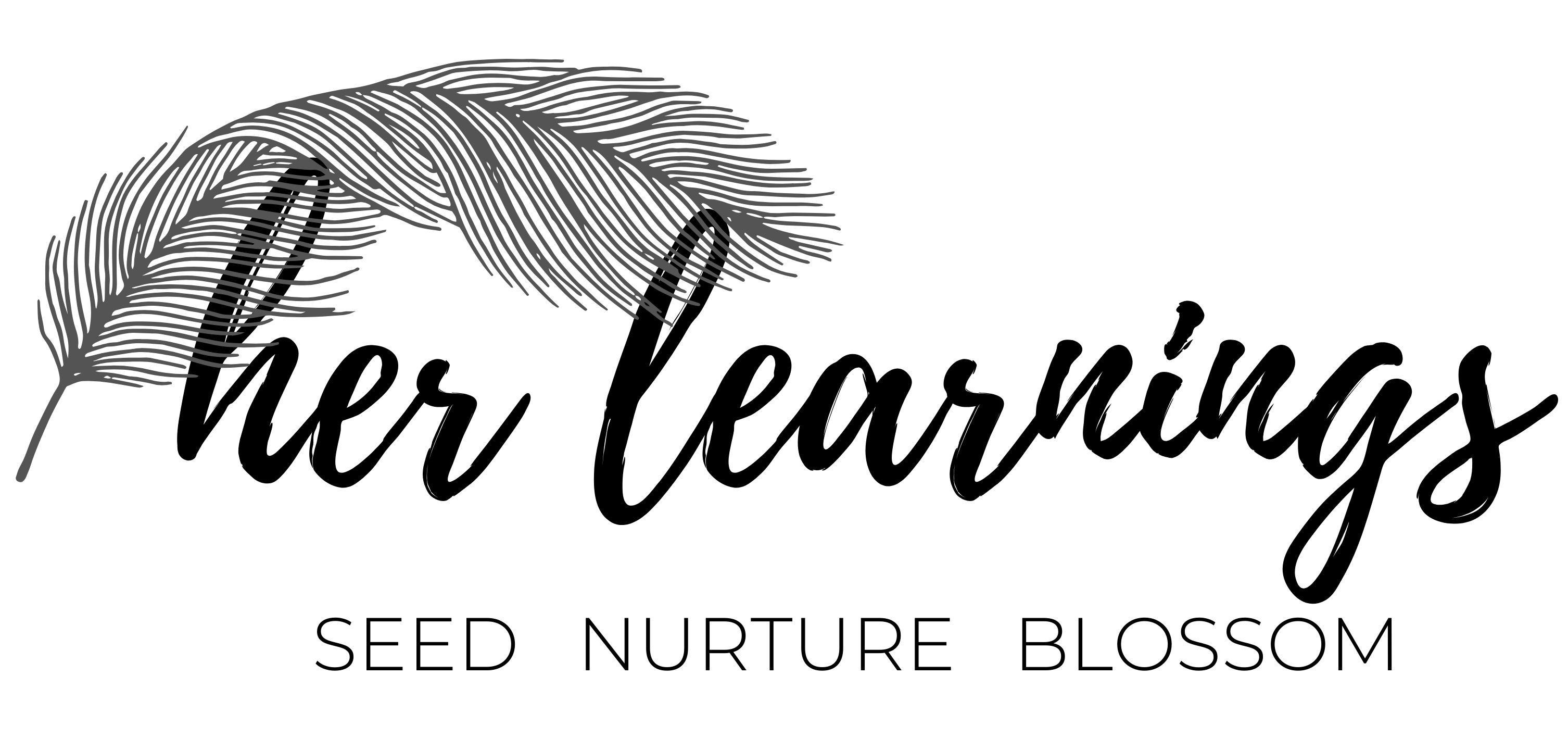
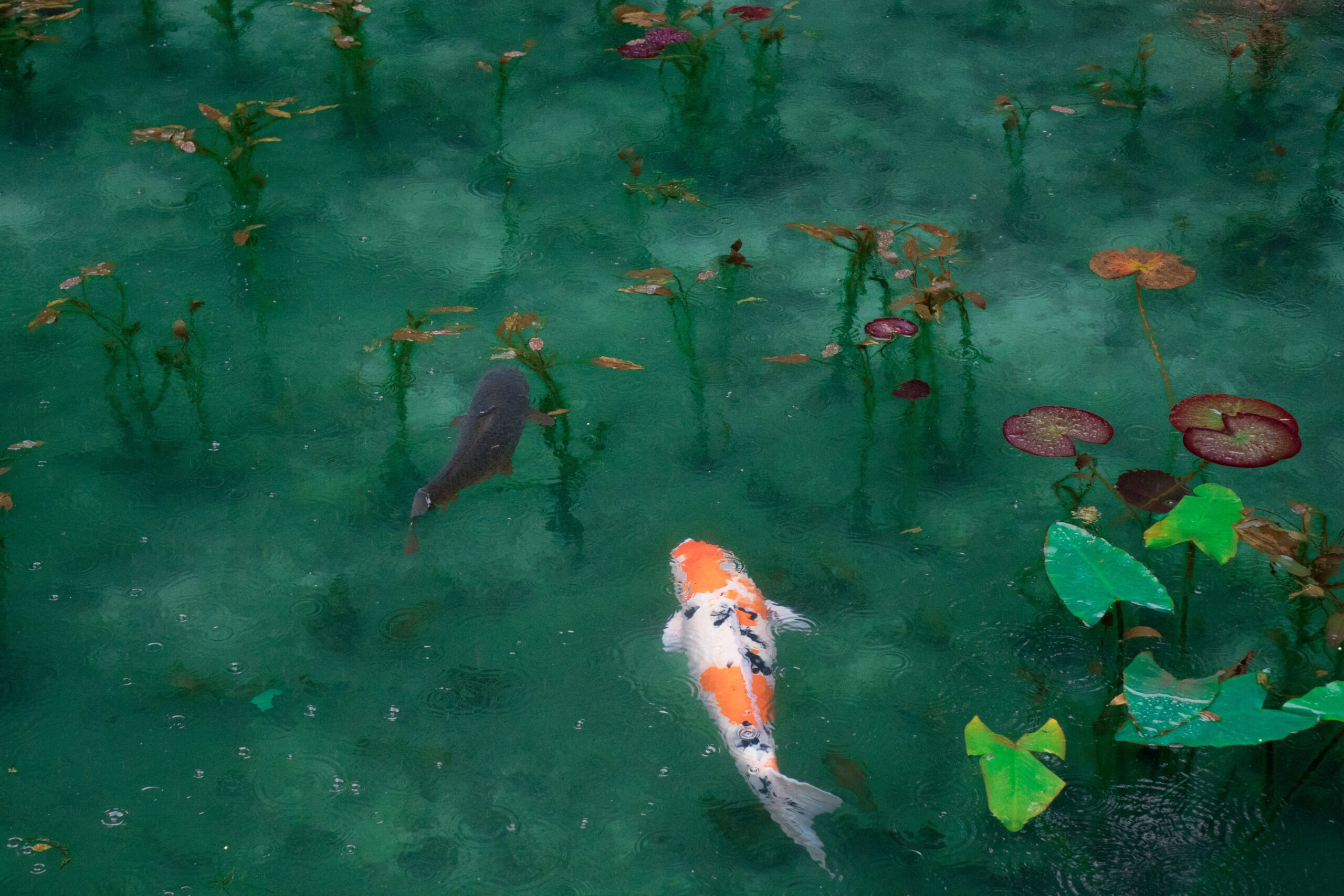



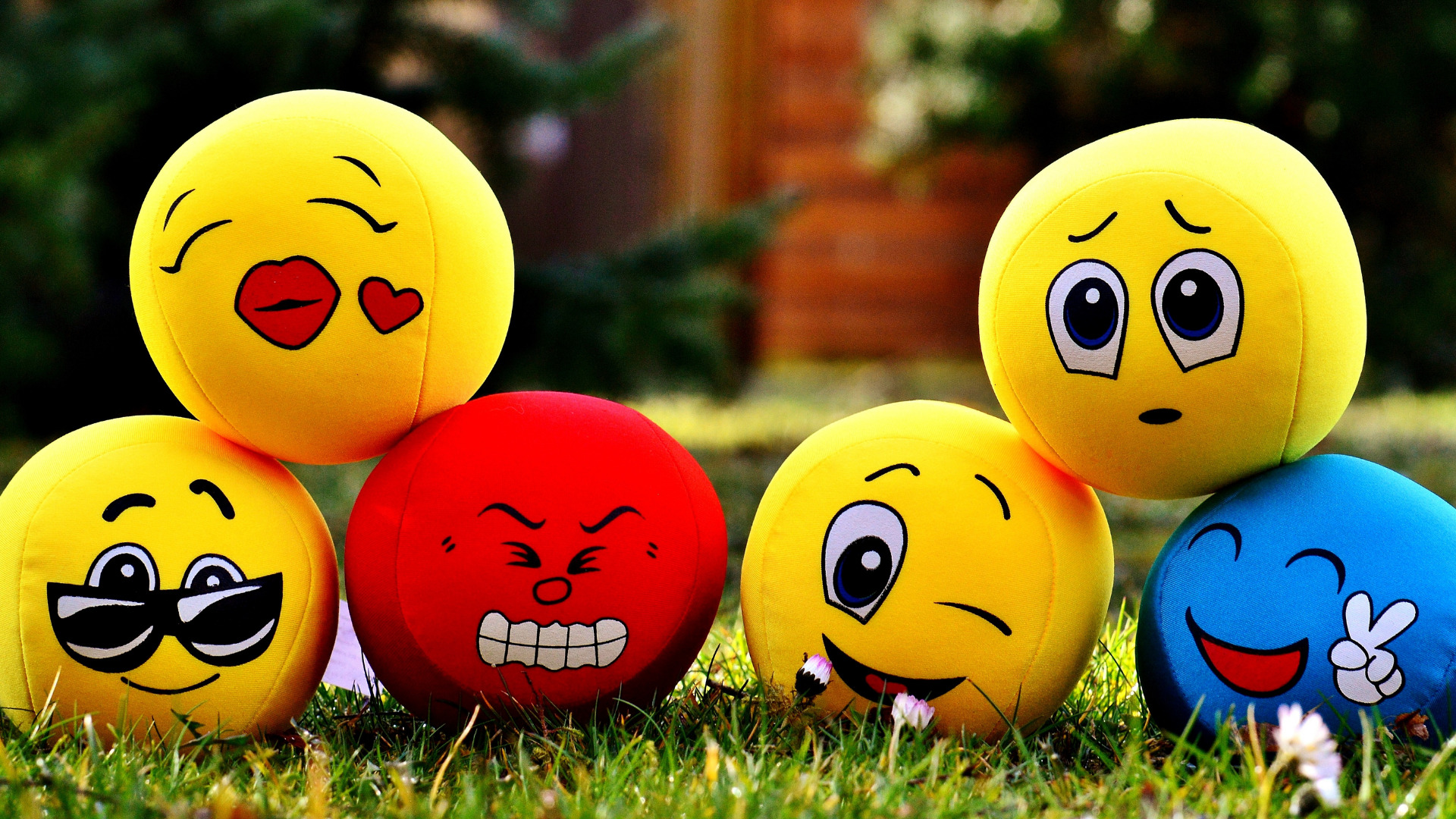
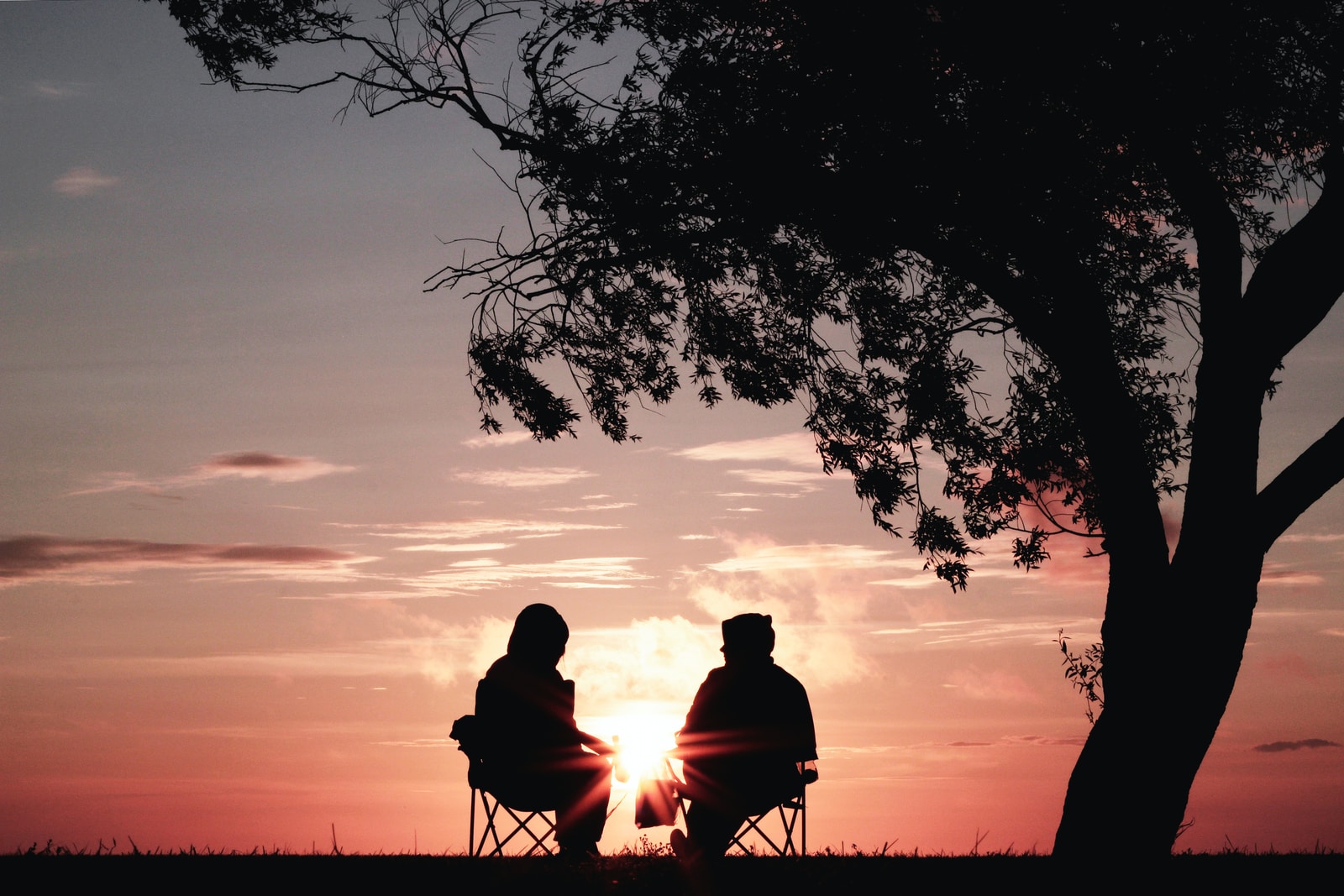
One Response
Can’t share